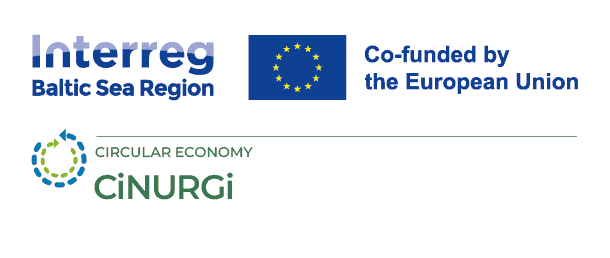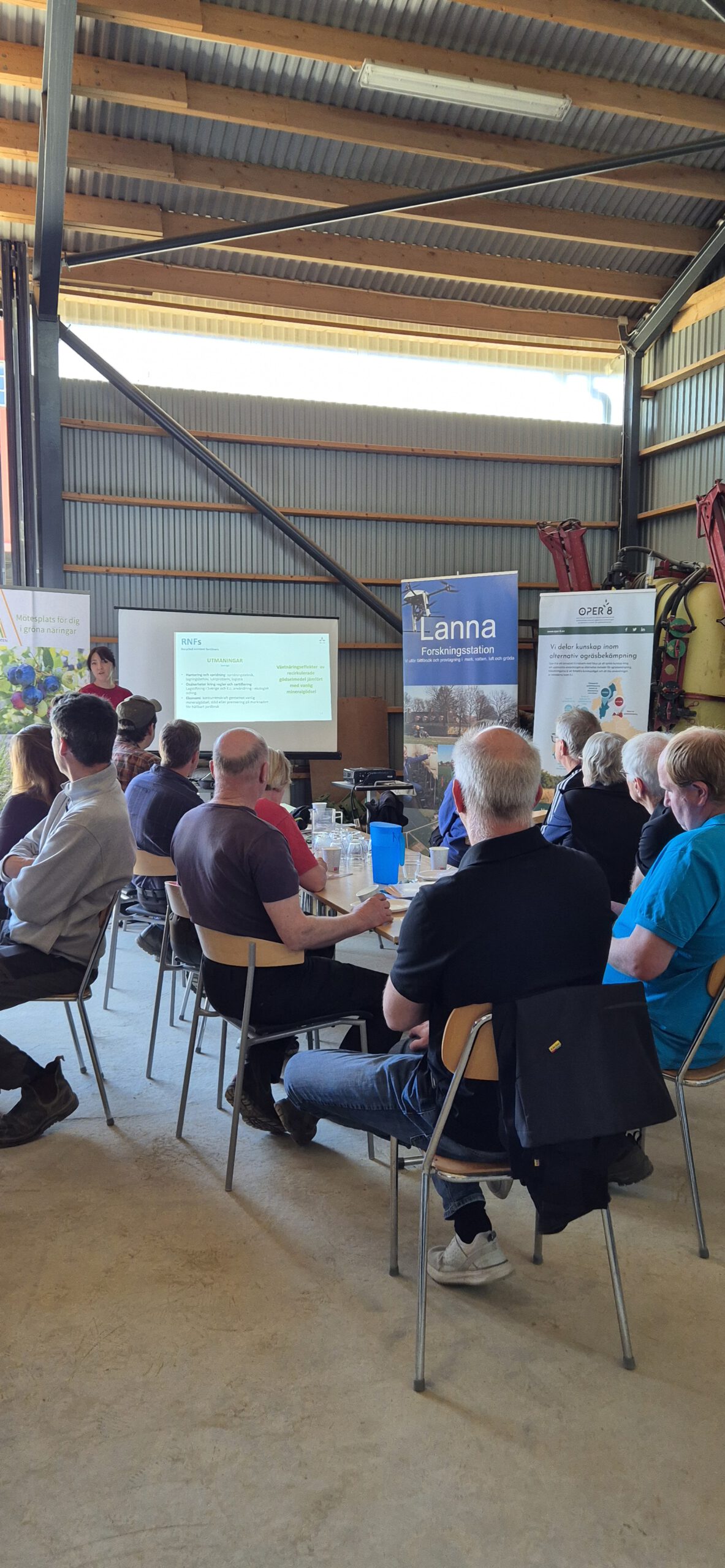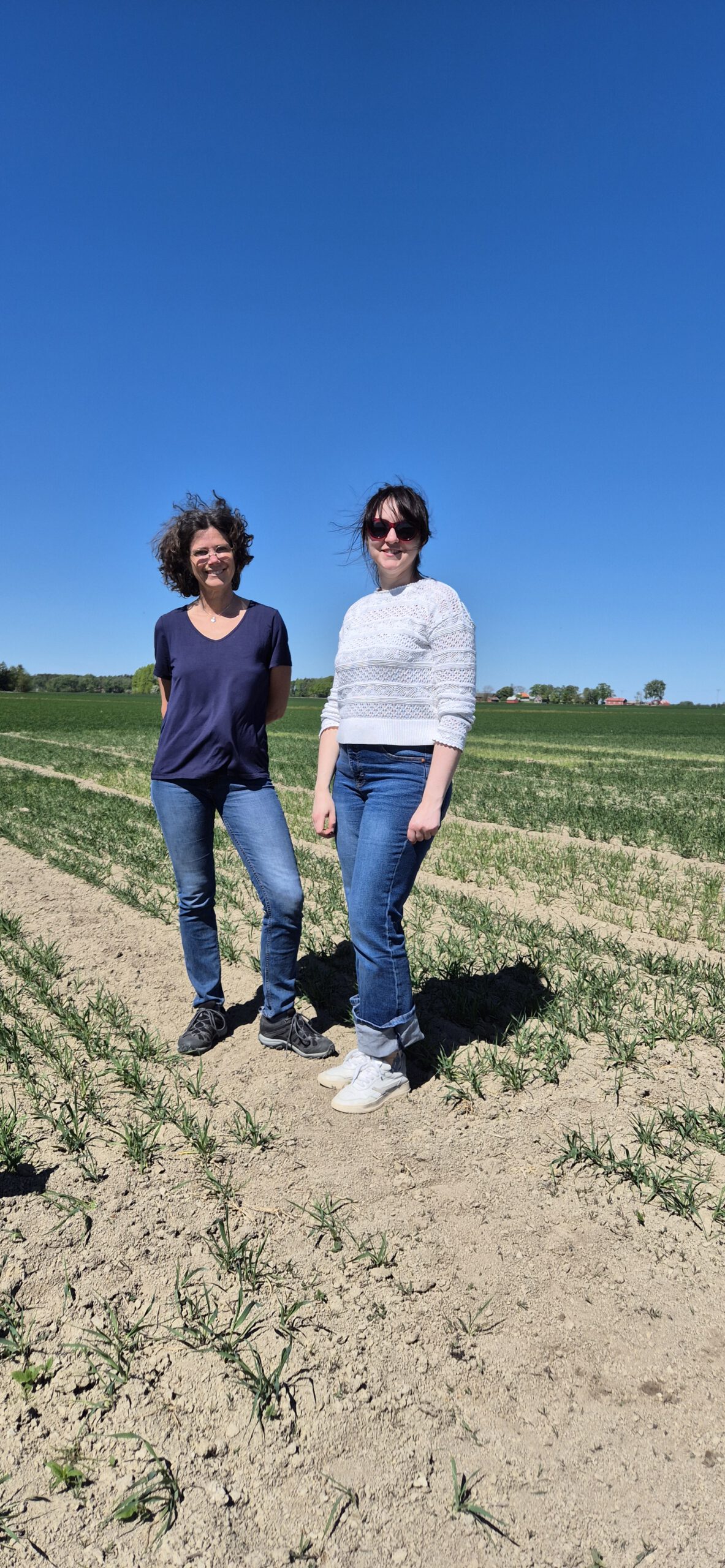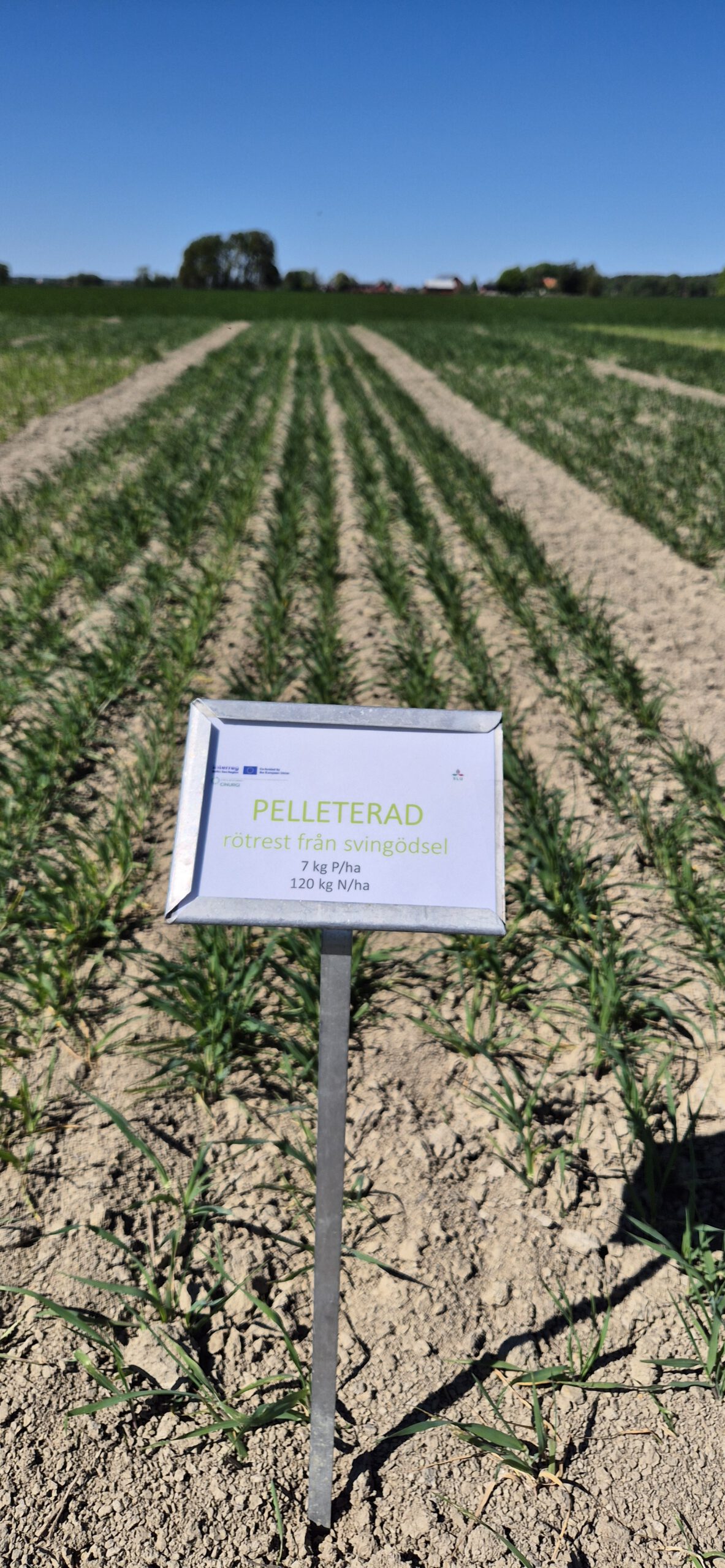
CiNURGi results showcased at Lanna Research Station, Sweden
18 September 2025
The experiments carried out at Lanna Research Station are part of CiNURGi Work Package 2 where the agronomic value of recycled nutrient fertilizers is being tested in field conditions. The trials at Lanna investigate the effects of different recycled nutrient fertilizers on nutrient uptake by spring barley, meaning how well the plants use the phosphorus and nitrogen from the fertilizer, compared to conventional mineral fertilizers. Since the use of recycled nutrient fertilizers by farmers, and support for the development of nutrient recycling in general, strongly depends on the availability of nutrients from these types of fertilisers, which affects crop yields and consequently the motivation to integrate them into agricultural production, evaluating their performance in real conditions is very important. These trials can demonstrate additional aspects of practical use and differ from the results obtained in other types of experiments.
Two recycled nutrient fertilizers, which had shown promising results in a previous greenhouse experiment, were selected for field trials. One of them is struvite, produced by CiNURGi project partner SF-Soepenberg GmbH, in Germany. Struvite is precipitated sewage sludge, meaning sewage sludge where the solids and liquids have separated. Struvite is the solids left in this equation. The other biofertilizer was an NP fertilizer in pellet form readily available from the Swedish market, called Alviksgarden. Both of this fertilizers are easy to spread in the field.
Dr. Oksana Valetska and Dr. Helena Aronsson, from SLU who have been involved in the trials hosted the open event in collaboration with the company Agroväst. The event included a short presentation of the project in addition to the field walk to discuss the results obtained in the greenhouse experiment and observe the plants in the field. In the project presentation Dr. Valetska spoke about the goal and objectives of the project, detailing what problems exist for nutrient recycling and the needs of end users for better use of nutrients in Sweden. The different nutrient resources and technologies that can be used for nutrient recycling were also discussed.
Both were happy to welcome several local farmers to communicate the ongoing field research and emphasise the primary results obtained from the greenhouse experiment in CiNURGi. The economic and political aspects of integrating recycled nutrient fertilizers into Swedish agriculture in the context of climate change were also discussed. Farmers are an important target group for CiNURGi project efforts, and their acceptance of recycled nutrient fertilizers is key to the development of a circular economy in nutrients.








